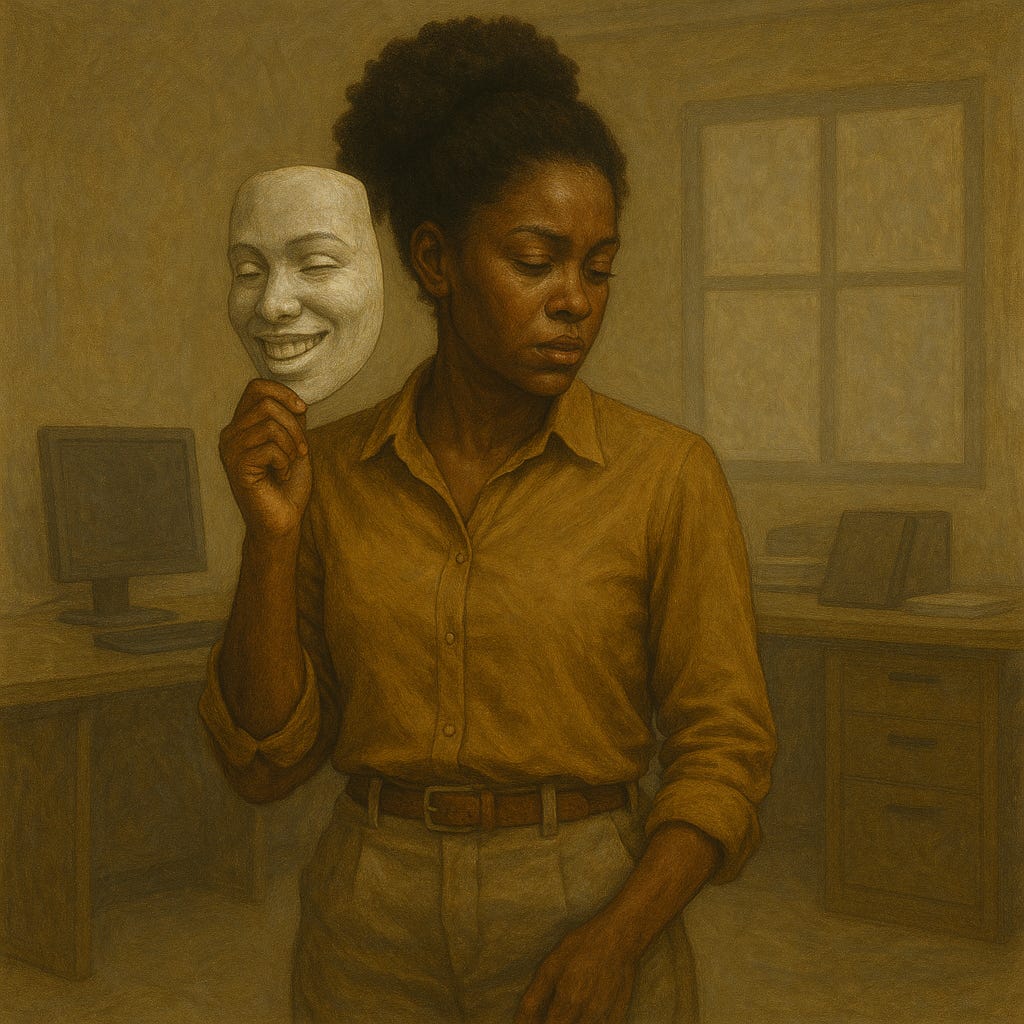Who Are You When You're Not Being Paid?
Once, we worked with our whole bodies. Our whole selves.
Work was life, it fed the community, honored the ancestors, mirrored the seasons. You weren't your title. You were your rhythm. Your offering. Your role in the whole.
Then came a different kind of labor.
Clock in. Smile. Be useful. Don’t bring your language, your grief, your beliefs unless they’ve been sanitized.
Now many of us show up to work like actors: script memorized, emotions trimmed, identity trimmed further. Dress code, code-switch, emotional restraint—repeat.
It’s hard to measure the weight of that costume. It looks like composure, but it’s really compression.
We’ve been told this is “professionalism.” But what if it’s just permission to disappear?
Every job has its mask. But in some roles, the mask becomes the person. You wear it so long, you forget where your skin ends and the branding begins.
This is how labor became erasure.
Not just of time and energy, but of truth.
Because the modern workplace doesn’t just want your skill, it wants your soul on mute.
Consider the word “employable.” It sounds objective, even flattering. But what it often means is: Can you neutralize truth long enough to fit our format?
Speak fluent institution. Smile through harm. Package your culture into a 3-minute icebreaker and your critique into a closing remark no one will quote.
And if you can't? You’re called “not a team player.”
But when did team spirit become code for spiritual erasure?
We decorate our resumes. We update our bios.
But what about the parts of us that don’t fit inside bullet points?
Who accounts for the healer who became a brand strategist?
The activist turned reluctant PR manager?
The poet, buried in development reports?
It’s not that work is bad. Work can be sacred.
But only when it welcomes the whole person.
Without that, we are working for survival, not expression.
Performing competence, not living alignment.
So let’s ask the question again, slowly this time:
Who are you when you're not being paid to be agreeable?
That version of you, the one who dreams in your grandmother’s voice, who moves to music that never charted, who still believes in slow truth, that version is not obsolete.
That version is the seed.
We don’t reclaim ourselves all at once. But we start somewhere.
We speak the unedited thought, even once.
We tell the workplace, “This matters to me,” even gently.
We write something under our real name. We remember that craft we loved before optimization entered the chat.
These are not luxuries.
They are acts of return.
Because when your soul can’t clock in, no salary will ever be enough.


